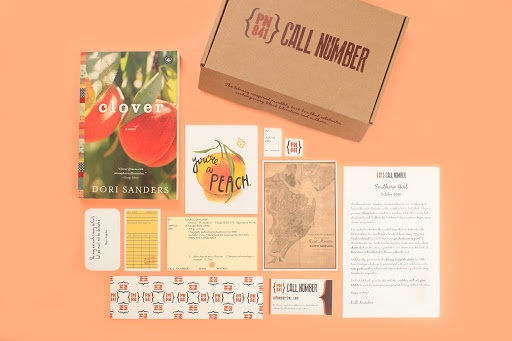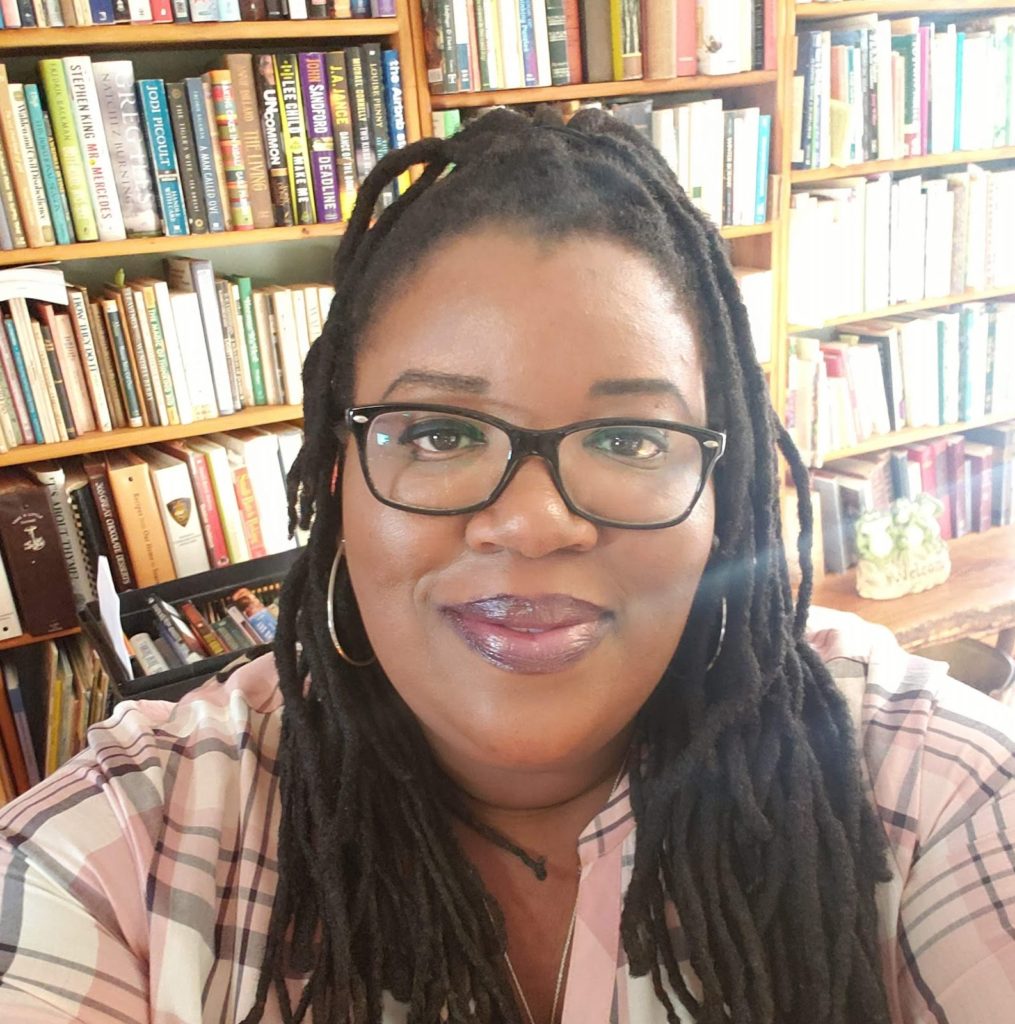This blog is a part of our series highlighting and celebrating Black founders within the subscription industry. With thousands of SUBTA members, we’re proud to tell their stories. Other blogs featured in this series include Unboxing Splendies: CEO Anthony Coombs on Gender Collaborations & Race in the Subscription World and How Work Space Spark Launched & Became Successful in Spite of Covid-19

Despite the fact that the United States is known as the melting pot of the world, our culture doesn’t always represent the diversity of our population.
As of 2019, African Americans make up 13.4% of the U.S. population. However, only about 4% of published authors are Black, according to DataUSA, an information repository powered by Deloitte and Datawheel.
When Jamillah Gabriel, a PhD student and trained librarian specializing in Black literature, came across a Black literature subscription box for children, she wished there was a version for adults, too. After searching tirelessly, she realized no such service existed — so she decided to create it herself.
Read on to learn how one determined woman decided to intervene in the predominately white literature industry and build a successful subscription business in the process.
Black Library Experiences Through Subscriptions
Call Number Box — named after the numbering system used in libraries to catalog and locate books on a shelf — is a subscription box celebrating classic and emerging Black authors.
Inside the box, subscribers will find a copy of the featured book as well as items related to the book and library nostalgia. All of the items inside are sourced from the book publisher or from Black-owned businesses. The box also serves to bring the library experience into subscribers’ homes.
“It’s a myth that libraries are dying due to our digital age,” says Jamillah, founder of Call Number Box. “Libraries are changing with the times. For example, we no longer use catalog cards. Everything is digital. But there’s always a need to remind people we’re here.”
Although Jamillah had no previous business experience when she launched Call Number Box, she credits her family tree — which is full of entrepreneurs and innovators — for giving her the confidence she needed to get started. Now, Jamillah runs Call Number Box while studying to earn a PhD in information sciences.
Impressively, Jamillah has found a way to balance being a student, having a personal life, and growing Call Number Box. The company launched two new genres in January, adding young adult (YA) and indie (self-published) boxes to their previous offerings of fiction and non-fiction boxes.
Call Number Box is also starting to curate special edition boxes tied with events. “Last year, we did a special Zoom event around Joy Cox’s book, Fat Girls in Black Bodies: Creating Communities of Our Own,” says Jamillah. “We’re also launching a new service for people who want to organize their own home libraries.”
If You Can’t Find What You Want, Create It

The idea for Call Number Box was inspired by the frustration Jamillah felt of not seeing herself and her community represented in literature.
Although she was grateful to find one Black literature subscription box for children— which she still subscribes to as a monthly gift for her niece — the fact that nothing similar existed for the 40 million Black adults in the U.S. was unacceptable to her.
“There was a gap and I represented one person who wanted this particular service but couldn’t find it,” says Jamillah. “The industry is very much whitewashed — publishing houses, authors, the whole spectrum. I wanted to promote Black literature and signal-boost lesser-known authors of color.”
Within the publishing industry, only 4.07% of authors are Black. Additionally, the African American Literature Book Club (AALBC) says they’re continuing to identify Black-owned publishing houses; the organization had only found 154 of the more than 2,400 (6.4%) American publishing houses to be owned by Black individuals as of last year. These disproportionate numbers are exactly what motivated Jamillah to start Call Number Box.
“This is part of my intervention to help get the word out about what’s available, who’s writing, and who’s publishing great stuff,” she says. “The authors we feature are also coming from all kinds of backgrounds. It’s not just African-American authors, but also Black authors from America, the Caribbean, Europe, and Africa. We’re trying to be diverse even under the umbrella of Black literature.”
There’s a lot coming into play within the box — all in service of increasing the representation and recognition of Black authors and business owners. By curating products from Black-owned businesses to introducing subscribers to Black authors and libraries, Call Number Box is a trifecta of social progress.
Jamillah’s subscribers are a large part of that progress as well. “We also have many white subscribers who want to hear Black voices and read about Black perspectives,” Jamillah says. “They’re becoming more interested in Black literature and Black thought.”
Not only is Call Number Box strengthening intellectual and social diversity, but as its founder, Jamillah serves as a model for other subscription box owners who want to enable change.
“It’s important for us as business owners to recognize that your product might have a certain person in mind that looks like you, but that it also can have appeal to a broad base of people,” Jamillah says. “A benefit to doing this is that we’re also reaching out to other people who might not have been exposed to whatever it is that you’re offering.”
Turning Underrepresentation Into Social Expansion

The fact of the matter is: Black business owners want to be seen, heard and supported “We’re not represented hardly at all. We are behind the times,” says Jamillah. “We are here!”
Community is such an important part of helping Black business owners overcome hurdles, but oftentimes Black entrepreneurs have to create their own communities since many don’t (yet) exist formally.
“I’ve connected informally on Facebook with other Black subscription owners because there isn’t much visibility for us,” Jamillah says. “Some companies are actively trying to fix this, which I appreciate. For example, Cratejoy, which is the platform we run Call Number Box on, has been actively trying to highlight Black-owned subscription boxes.”
Similarly, SUBTA is working to make deliberate progress toward inclusion and representation within the subscription industry. There are still so many opportunities to share stories from all of our members and continue growing and learning together. “Many of us are members of SUBTA,” says Jamillah, “but we’re not seeing ourselves at all. We would like to see more Black business owners and professionals at conferences as well as sessions dedicated to conversations on inclusion and representation.”
Black business owners face more obstacles than nonminority entrepreneurs. From fighting “casual racism” to supporting Black innovators with actionable insights to help them overcome those obstacles and grow their businesses, progress needs to take place on a 360-degree social stage.
As a woman of words, Jamillah shares some strong encouragement for aspiring Black entrepreneurs. “Regardless of the challenges, if you’re thinking about starting your own subscription business, do it! If you’re BIPOC, there’s most likely a gap and that’s what we need: people to fill those gaps. We’re often not the people in mind when things are created, so we have to create it ourselves.”
SUBTA is the only professional organization built by subscription business owners for subscription business owners. Join today to get access to our supportive community, shared resources, new content every month, virtual events, and discounted tickets on our annual world-famous conference, SubSummit.

